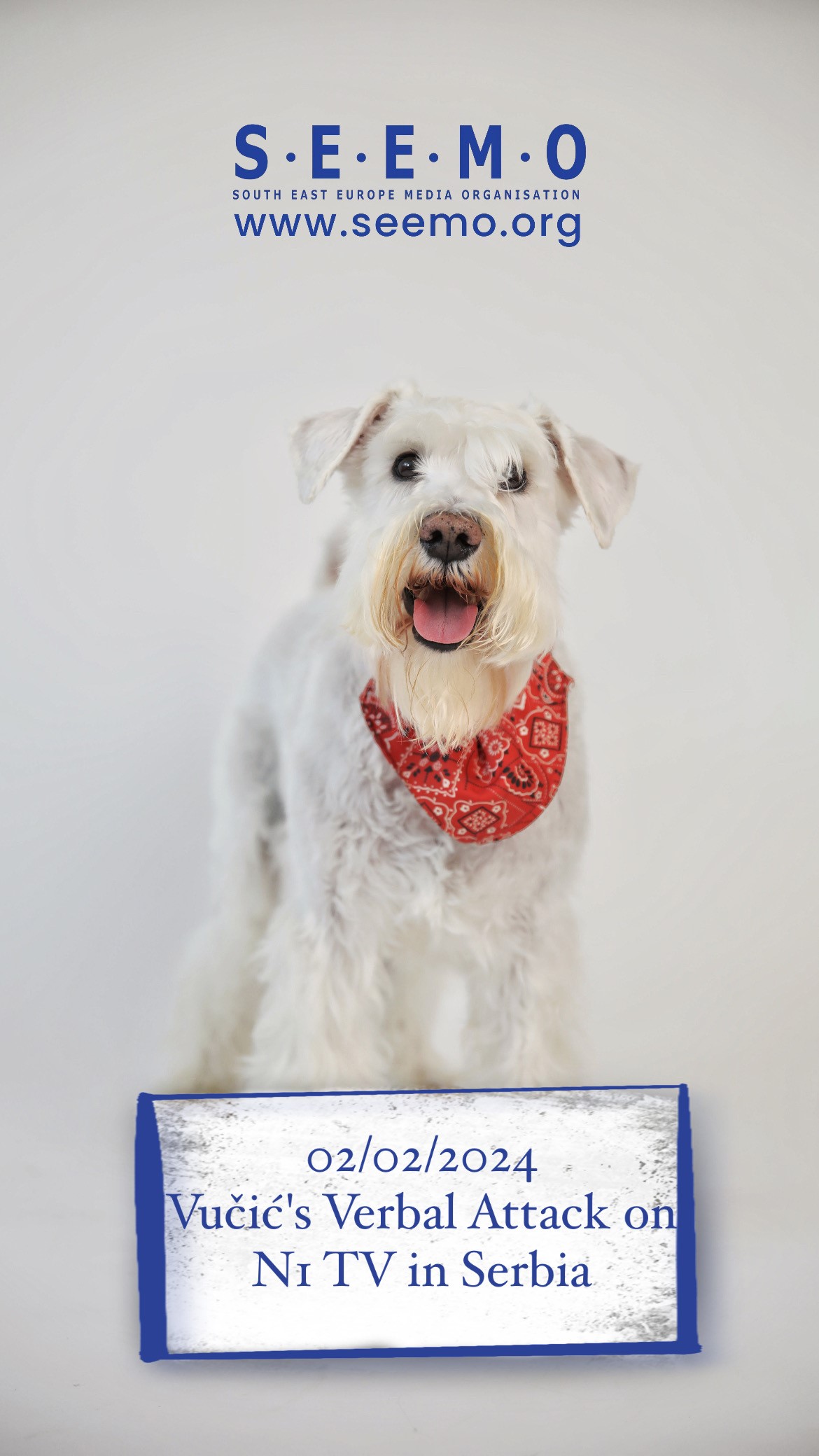On 26 January 2024, during a press conference in Vranje, Serbia, Serbian President Aleksandar Vučić engaged in a contentious exchange with N1 (https://n1info.rs/) journalist Gordana Bjeletić.
Vučić, visiting Vranje, was questioned by Bjeletić about post-electoral alliances in Belgrade, Serbia. Responding with heightened emotions, Vučić accused N1 of dishonesty and bias against him and his family, stating that he had not appeared on the N1 for years due to their portrayal of his family as criminals and him as “Hitler or fascists”. You can see the link of the conversation here: https://n1info.rs/vesti/video-vucic-na-pitanje-o-koaliciji-u-beogradu-verbalno-napao-novinarku-n1/
Vučić criticized N1 for alleged misrepresentation and manipulation of his statements.
The incident reflects ongoing tensions between Vučić and critical media outlets in Serbia.
Politicians close to Vučić are very often attacking N1. One of them said several months ago that N1 company release the most disgusting propaganda film against Aleksandar Vučić and that also Goebbels (note by SEEMO: Paul Joseph Goebbels chief propagandist for the Nazi Party in Germany in the World War II), should envy them, because even he did not think of doing something like this. Some leading pro governmental politicians in Serbia accused several times N1 for “sick campaigns” against the Serbian president and government. Members of the ruling party in Serbia are using very often accusations against critical journalists branded as traitors who act against the state or that journalist associations allegedly are receiving money from abroad to fabricate scandals; or that critical media are mercenaries of foreign powers threatening the government and the president himself. According to politicians in power critical media in Serbia are controlled by tycoons and are dissatisfied with the fact that “Serbia is progressing and developing more than other countries in the region”.
Incidents like these raise concerns about the loss of democratic standards and the stifling of dissenting voices.
According to Slavko Ćuruvija fondacija from Belgrade this Foundation observed from April to July 2022 that politicians in Serbia attacked critical media or journalists 68 times. According to this research attacks in 83.8 percent of cases came from members of the ruling Serbian Progressive Party (SNS), including very often verbal attacks by President Aleksandar Vučić and Prime Minister Ana Brnabić.
The South East Europe Media Organisation (SEEMO) condemns President Aleksandar Vučić’s disrespectful and aggressive behavior towards N1, as also attacks by members of his party against critical media in Serbia. Journalists play a crucial role in a democratic society by asking questions on behalf of the public, and their right to do so without fear of reprisal is fundamental to press freedom. SEEMO calls for respect for journalists’ rights and urges political leaders to engage in constructive dialogue rather than resorting to personal attacks when faced with tough questions.
South East Europe Media Organisation (SEEMO) is a regional non-governmental, non profit network of editors, media executives and leading journalists in Southeast, South, East and Central Europe. SEEMO members are in Albania, Armenia, Azerbaijan, Belarus, Bosnia-Herzegovina, Bulgaria, Croatia, Cyprus, Czech Republic, Estonia, Georgia, Greece, Hungary, Kazakhstan, Kosovo, Kyrgyzstan, Latvia, Lithuania, Malta, Moldova (with the territory of Transdnestria), Montenegro, North Macedonia, Poland, Romania, Russia, Serbia, Slovakia, Slovenia, Tajikistan, Turkmenistan, Türkiye / Turkey, Ukraine and Uzbekistan. Austria, Italy, Vatican and San Marino have a special status in SEEMO. SEEMO has over 3000 individual members, and additional media as corporate members.
#fyp #mediafreedom #seemo #freespeech #southeasteuropemediaorganisation #ngo #journalist #journalistunderattack #serbia #N1 #gordanabjeletic #SEEMO #pressfreedom #mediafreedom #freemedia @n1srbija @GordanaBjeletic

